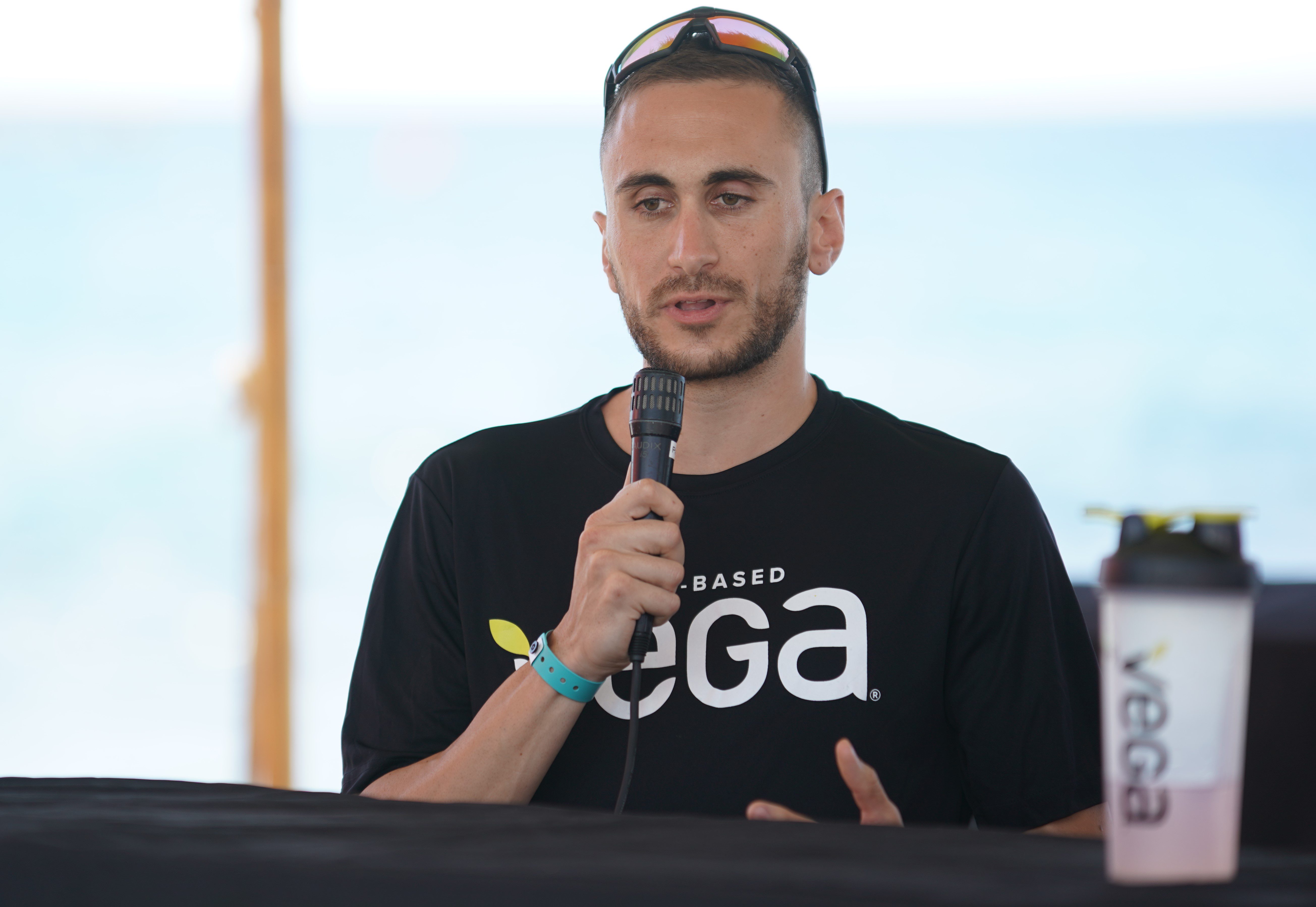“I had to lose racing to truly appreciate what I had.” Ironman champ Cody Beals reflects on 2020
A frank and open Q and A with the three-time Ironman champion
 Photo by:
Kevin Mackinnon
Photo by:
Kevin Mackinnon
One of Canada’s shining stars in long-course Triathlon is Cody Beals, from Guelph, Ont.. Beals was Triathlon Magazine Canada’s athlete of the year in 2019 and was poised to have another strong season in 2020 when Covid struck. TMC regular contributor Kevin Heinze had a chance to catch up with him.
Triathlon Magazine Canada: One of the things that sets you apart from many triathletes is the quality and the honesty of your blog posts. Where did you learn to write so well?
Cody Beals: Coming out of high school, I was pulled in different directions in terms of my interests and opportunities. I eventually went the science route, but I’ve always appreciated writing. My mom was my first role model as a writer and I still get her to proofread much of my work. I also credit my dad for reading extensively to me as a kid.
Did you have any sport heroes growing up in Fergus and Guelph?
No, I wouldn’t even describe myself as a hardcore sports fan. In fact, as a pro, I follow triathlon racing just enough to know my competition. Maybe that’s a good thing, because today I’m racing athletes who would have been my heroes. I’ve always maintained that it’s tough to beat people you hero worship.

A lot of triathletes from Ontario, once they experience some success, move out to BC, for example Simon Whitfield and Peter Reid. Do you have plans to move to BC?
I’ve lost quite a few friends to the West Coast and more recently, my sister, so I have a lot of connections there. As the long Ontario winter sets in, the west coast looks more appealing than ever. For now, I’m happy here in Guelph. The triathlon scene is thriving, and the cultural vibe suits me. I bought place here a few years ago, so I’m putting down roots.
You ended 2019 with a mechanical issue in Kona, started 2020 in Mexico with a flat tire and came 10th, then came COVID and no racing at all. What was going through your mind in those early days of March and April?
It was stressful. I remember all my sponsors scheduling a call in March, and I thought, “Ok, this is it, I’m going to be shown the door.” Fortunately, all my sponsors stood by me, which took some financial pressure off. There were still struggles though. Up until Kona, the trajectory of my career seemed to be solid, but I was starting to struggle. I was losing my way.
After those breakthrough wins at Tremblant, I felt as though everything I was doing was under the microscope. I felt that every time I set foot on the race course, I had to do something spectacular. Those insidious thoughts poisoned my relationship with racing. At best, I shied away from racing. At worst, I dreaded it. The pandemic compelled me to reconsider my view of racing; I had to lose racing to truly appreciate what I had. I was struck that I was still hungry for competition.
Tell us about your race at Challenge Daytona.
I had a fair performance in Daytona, something like a 70th percentile outcome. The shorter format didn’t particularly suit my strengths as an Ironman-specialist. First and foremost, I was there to show solidarity with the new Professional Triathletes Organization (PTO).
I was extremely impressed by the way the PTO pulled off the race despite the challenges imposed by the pandemic. The production, prize purse, field and coverage elevated our sport to an unprecedented level of professionalism.
The only disappointment was witnessing some rule breaking and lax officiating related to the draft zone and swim start, which certainly impacted the results. I shared some constructive feedback along the right avenues.
One of the things that makes triathlon exciting for fans is rivalries. What’s your take on that?
Some people have pitched my history with Lionel as a rivalry. I think that’s generous because we’ve raced about a dozen times and I’ve only beaten him twice, at Tremblant. Even so, that supposed rivalry has been tremendous for my career.
In my experience, the professional triathlon community is quite supportive, and the athletes tend to get along well. My fiercest rivalries may be with my training partners and friends like Jackson Laundry and Taylor Reid.
Do you get bad dreams about triathlon?
Oh, for sure! I have this recurring anxiety dream before major races. I’m trying to find my way to transition through a chaotic maze of hallways and people. The announcer is counting down to the start of the race as I’m frantically pressing my way through the crowd.
What scares you, triathlon or otherwise?
Regret. For example, I struggled through some challenging years in university. It was formative experience, but I missed out on a lot in my late teens and early twenties. Looking back, those memories are tinged with painful regret. I do my best to view every stage of my life as an opportunity. I’m sometimes fearful that I’ll overlook an opportunity or take a misstep and be forever consumed by regret.

